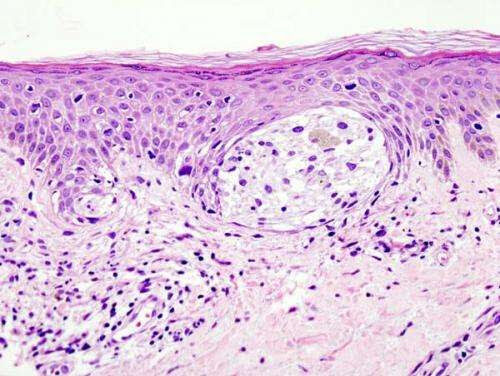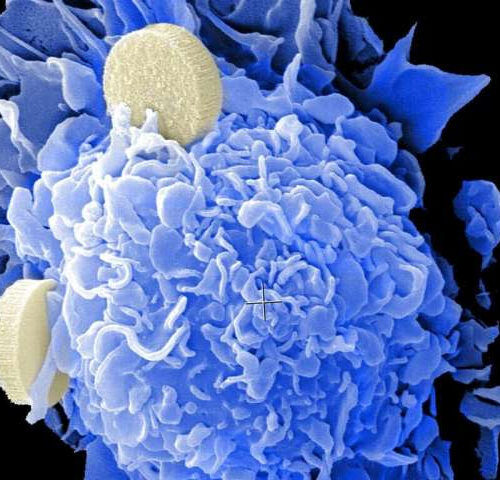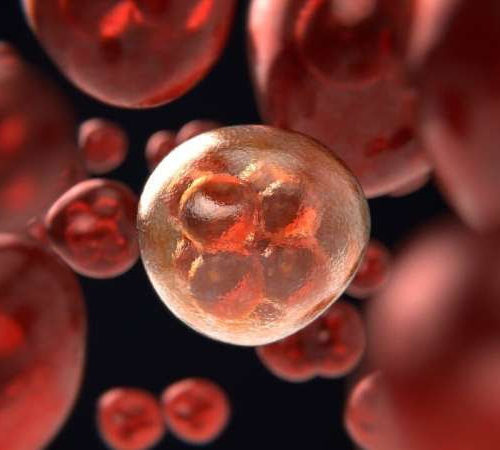Peer-Reviewed Publication Huntsman Cancer Institute FacebookXLinkedInWeChatBlueskyMessageWhatsAppEmail image: Sheri Holmen, PhDview more Credit: Huntsman Cancer Institute A federally funded research team led by Sheri Holmen, PhD, investigator at Huntsman Cancer Institute and professor in the Department of Surgery at the University of Utah (the U), is testing a new combination drug therapy that could both treat and prevent melanoma metastasis, or spreading...
Tag: <span>melanoma patients</span>
Treatment with immunotherapy alone produces ‘exceptional’ response rates in some melanoma patients
by Ohio State University Medical Center Melanoma in skin biopsy with H&E stain—this case may represent superficial spreading melanoma. Credit: Wikipedia/CC BY-SA 3.0 Data from a national clinical trial shows that a striking 89% of patients with desmoplastic melanoma responded to immunotherapy (pembrolizumab) alone, suggesting that many patients could avoid the risk for toxicity from combination...
Vitamin D deficiency in melanoma patients associated with worse overall survival, new study finds
by European Academy of Dermatology and Venereology Credit: CC0 Public Domain Vitamin D levels affect overall survival for melanoma (skin cancer) patients, a new study presented at the 31st European Academy of Dermatology and Venereology (EADV) Congress has shown. Dermatology researchers discovered that those who were deficient in vitamin D (lower than 10ng/mL) following their melanoma diagnosis were twice as...
A high-fiber diet may improve the response of melanoma patients to immunotherapy
by National Cancer Institute Credit: Unsplash/CC0 Public Domain A diet rich in fiber may help some people being treated for melanoma respond to immunotherapy treatment by influencing the gut microbiome, according to a new study led by researchers at the Center for Cancer Research at the National Cancer Institute (NCI), part of the National Institutes...
Study identifies gut microbes associated with toxicity to combined checkpoint inhibitors in melanoma patients
UNIVERSITY OF TEXAS M. D. ANDERSON CANCER CENTER HOUSTON – Researchers from The University of Texas MD Anderson Cancer Center found specific intestinal microbiota signatures correlate with high-grade adverse events and response to combined CTLA-4 and PD-1 blockade treatment. The study, published today in Nature Medicine, also identified a potential new strategy to treat toxicity – while maintaining response...
Why some melanoma patients do not respond to immunotherapy
by Columbia University Irving Medical Center Credit: Pixabay/CC0 Public Domain By harnessing the immune system against cancer, immunotherapies have revolutionized the way some types of cancer are treated. But most patients—across cancer types—do not respond, and in most cases, scientists are at a loss as to why. Researchers at Columbia and MIT have created a new technique...




